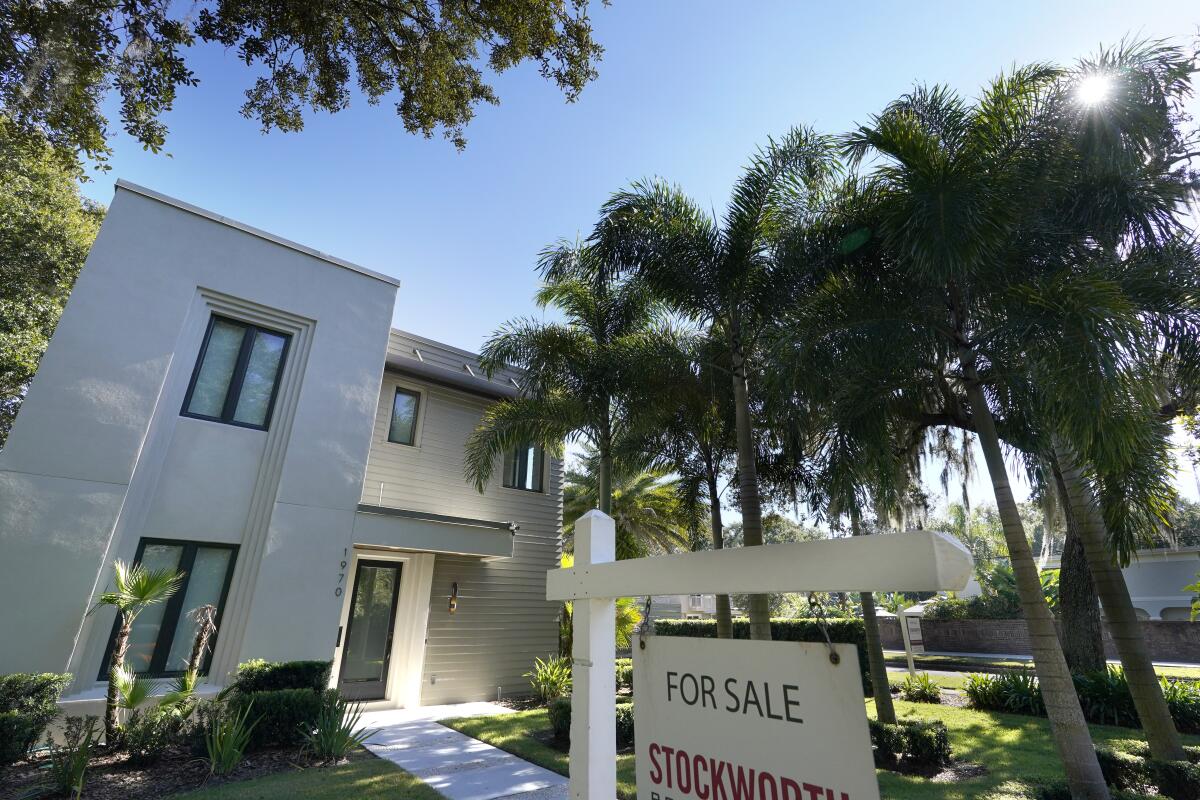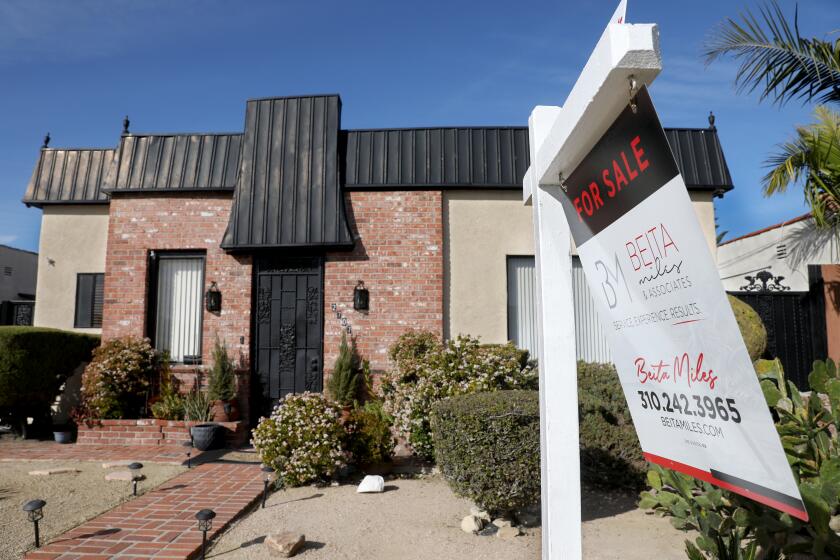Long-term mortgage rates drop below 5% for the first time since April

- Share via
Mortgage rates in the U.S. slipped below 5% for the first time in almost four months, giving borrowers a reprieve after this year’s rapid surge.
The average for a 30-year loan fell to 4.99% from 5.3% last week, Freddie Mac said Thursday in a statement. That’s the lowest since early April and the biggest one-week drop since early July.
The decline in rates may help some home buyers who were priced out this year by the fastest-rising borrowing costs in decades.
The Federal Reserve’s campaign to curb inflation by driving up its benchmark rate is putting an end to the pandemic housing boom. Sales are now sinking and inventory is starting to climb.
Pending home sales decreased nationwide in June, following a slight increase in May, according to the National Assn. of Realtors. All regions reported month-over-month and year-over-year pullbacks, with the largest happening in the West, the trade group said.
The Southern California housing market is cooling and forcing buyers and sellers to adjust. Here is what you should know if you are in the market.
In Southern California, home prices and sales edged lower in June from the month before, with the median home price slipping to $750,000 from $760,000 in May, according to DQNews. However, the region’s median — the point at which half the homes sold for more and half for less — remained much higher than the year-earlier median of $679,000, DQNews said.
“Mortgage rates remained volatile due to the tug of war between inflationary pressures and a clear slowdown in economic growth,” said Sam Khater, Freddie Mac’s chief economist. “The high uncertainty surrounding inflation and other factors will likely cause rates to remain variable, especially as the Federal Reserve attempts to navigate the current economic environment.”
At the current 30-year average, a borrower with a $300,000 mortgage would pay $1,608 a month, roughly $326 more than at the end of last year.
The U.S. has been marching toward a recession with the economy shrinking for a second straight quarter, according to data released last week. But there have been positive signs lately, with growth in the U.S. services sector unexpectedly strengthening to a three-month high in July.
The Federal Reserve may have accelerated its attack on inflation by hiking interest rates. But that’s also driving up rents by deterring would-be buyers.
“Capital markets are seeking a stronger directional signal about economic activity amid the push-and-pull of consumer spending and business investments,” said George Ratiu, Realtor.com’s manager of economic research. “Without a clear direction, markets are confining mortgage rates to move within a tighter range, as the sharp upward push has moderated.”
More to Read
Inside the business of entertainment
The Wide Shot brings you news, analysis and insights on everything from streaming wars to production — and what it all means for the future.
You may occasionally receive promotional content from the Los Angeles Times.












